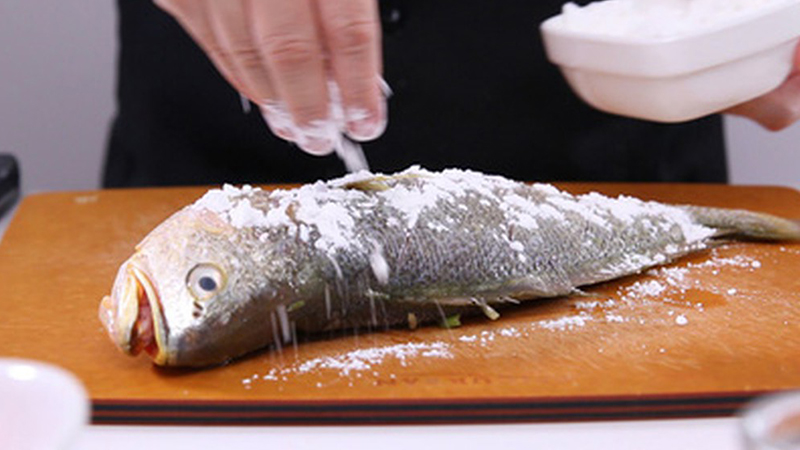Choose to buy fresh fish
To ensure a longer shelf life for fresh fish, it is important to choose the freshest fish.
Buying fish when it is still fresh will allow it to last longer compared to old fish because the process of bacterial growth in fresh fish takes longer than in old fish. Therefore, preservation is easier and the freshness of the fish will last longer.

Preserving fresh fish with a refrigerator
When you bring home fresh fish, it is advisable to clean the fish thoroughly, especially the intestines and stomach. After that, store it in an airtight container or wrap it tightly and place it in the freezer compartment of the refrigerator.
It is recommended to divide the fish into portions for consumption and only thaw the amount needed. Do not thaw and refreeze the fish multiple times as it will result in loss of nutritional value.
Preserving fresh fish with lime or vinegar
When you bring home fresh fish, you can apply a small amount of vinegar or lime juice to the fish, especially the stomach area, to remove the fishy odor and help the fish stay fresh for a longer time. This method can help preserve the freshness of the fish for 3-5 hours.
Preserving fish with white wine
White wine can also be used to keep fish fresh and flavorful. Pour a small amount of white wine into the fish’s mouth, and it will help keep the fish fresh for about 1 to 3 days.
Preserving fresh fish with salt
There is a saying “Fish won’t spoil if it’s preserved with salt.” Indeed, when you bring home fish and do not cook it immediately, you can marinate the fish with a pinch of salt. The salt will help prevent the fish from spoiling for about 1 day.

Preserving fish with damp paper
When the fish is still alive, its eyes are always in contact with water, which helps keep the optic nerves on the fish’s eyes intact. If these nerves are damaged, the fish will die quickly and become old faster. Therefore, to preserve the freshness of the fish, you should place damp paper on the fish’s eyes to prevent the optic nerves from getting damaged.
We hope this article provides you with useful information to keep fish fresh and enjoy delicious meals for your family.
Wishing you success!
Source: Giadinhvietnam





































